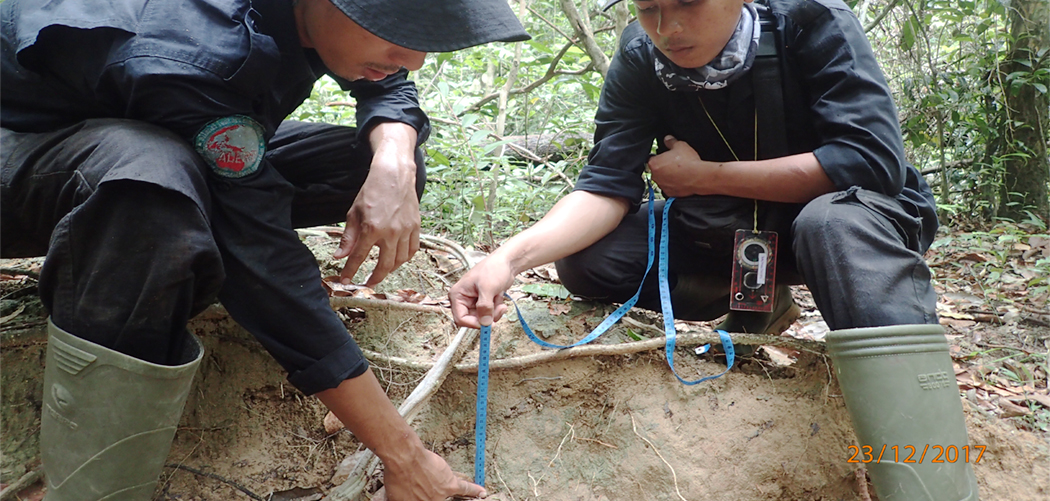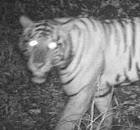The second years of the Elephant Food Farm Project (EFF), ( makanan gajah) constrain more on continuing the maintenance of the previous Food Farm Project, and develop a new program of Elephant Natural/endemic Food Garden/Plot. On the 3 hectares food farm, the sugar cane are all being replaced by king grass. The “very high” preference of this commodity (sugar cane) by the wild elephant, has caused the sugar cane fail to grow. Actually this condition become an interesting fact, that we can easily attract Wild elephant with a specific plant, which in a tourism development and in reducing the Human –Elephant Conflict context, this could be an important fact. But in a food farm context, this is a very contra-productive factor.
The Replanting and maintenance activities has been done, and the 3 hectares farm has all grown by king grass in a good condition. Mr. Rahwan has been very helpful on manage those activity, and monitoring the progress. For the 1 hectare mixed coconut and banana farm, has been re- manure/fertilized and weeds cleared. Until now, there has been 18 times harvesting activity in total. The harvesting activity manage by the ECC, with considering the farm condition and the Elephant need for extra food.
There are some problem with the land renting of the farm. We are still negotiating to add 2 more years for the land renting of the 3 hectares farm, and find another 1 hectare land to be rented. Unfortunately there hasn’t been any progress, due to the high demand of the land to be planted by “cassava”. The price of cassava has been increasing 100 percent from last year, and become a very valuable commodity for villagers.
As for the Elephant Natural Food Garden/Plot, located inside the ECC area, a WKNP staff who we gave responsibility to manage the development, hasn’t come to a significant progress. The “fencing” of the Garden/Plot, become one of the hard task to be considered. We still plan to start this project immediately, since this Garden/Plot, will be an important Pilot Project, to a more wide and intensive Program of Habitat Restoration for the Elephant.
By Dicky Tri Sutanto









































 Enjoy the Way Kambas National Park endangered mega fauna and other rare wildlife species caught in video. Find mother and baby of Sumatran rhino, challenging young male Sumatran tiger, big family of Sumatran elephant, funny Malayan sun-bear and curious Malayan tapir.
Enjoy the Way Kambas National Park endangered mega fauna and other rare wildlife species caught in video. Find mother and baby of Sumatran rhino, challenging young male Sumatran tiger, big family of Sumatran elephant, funny Malayan sun-bear and curious Malayan tapir. It was written by Janos Olah & Attila Simay in Birding Asia magazine, on 2007. Not only the great variety of the otherwise scarce and hard to-come-by species is what makes this national park world-famous, but also the relative ease in finding them. No other place in sumatra that has 4 species of Frogmouth.
It was written by Janos Olah & Attila Simay in Birding Asia magazine, on 2007. Not only the great variety of the otherwise scarce and hard to-come-by species is what makes this national park world-famous, but also the relative ease in finding them. No other place in sumatra that has 4 species of Frogmouth.

